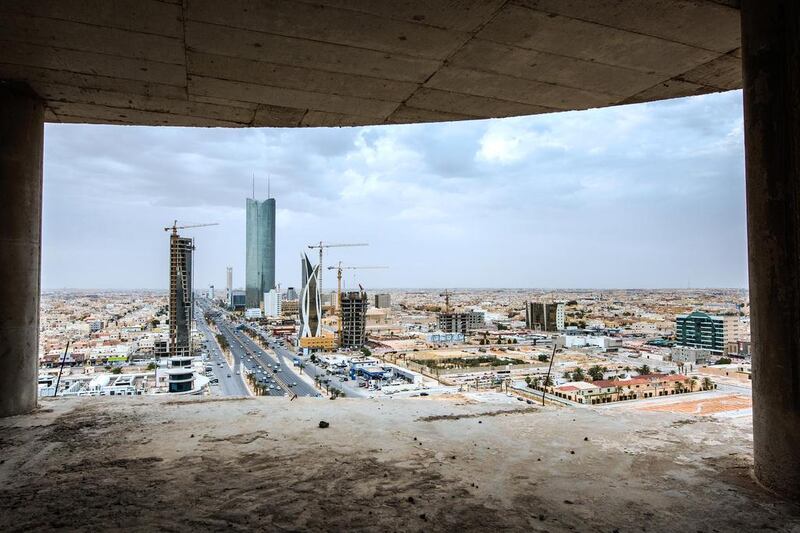The Saudi government’s pledge to pay 70 per cent of the outstanding bills owed to the country’s construction sector is slowly starting to feed through to company accounts.
In an interview with The National, George Ball, the chief financial officer of the global engineering consultancy Parsons, said: "We began to see payments flow through in the last six to eight weeks, but we went through a period of time where they dried up entirely. We didn't see anything for months."
Parsons has been working on a number of major projects in the kingdom, including the infrastructure development of 11 huge sites in 10 cities that will provide land for housing, and as a programme manager (in a joint venture with Systra) for the US$10 billion contract to deliver lines 1 and 2 of Riyadh Metro.
Mr Ball said that even in a normal market, payment terms in the Middle East are longer, at about 90 days, than many other parts of the world, but in some cases it has been waiting for up to 180 days.
“It’s not consistent across the board in terms of general slowness. But in virtually every quarter in every area, there’s been some slowing – to the degree that if that were to continue for the long term that would be more troubling.”
He said that payment cycles have lengthened in the past, but in the current cycle delays have been even worse than after the global financial crisis in 2008.
“If, as it has historically, you can see it ending, the commitment to the region you provide and the quality of staff doesn’t really change. But if that were to persist for a long time, firms are not going to dedicate the same level of attention from the standpoint of allocation of resources.”
He said that payment delays had led to a question at a recent board meeting as to whether the company’s emphasis might change with regards to its Middle East operations, where Parsons employs about one-third of its staff worldwide, but said the company remained committed to the region.
“We don’t believe this is a long- term situation. We’ve been in the region for decades, we’re not going anywhere and it’s just a business condition that exists when you have cycles like this. So I wouldn’t say it’s of any long- term concern.”
Fawwaz Al Khodari, the chief executive of Al Khodari, the only contracting company in Saudi Arabia whose shares are publicly traded, said in a conference call last month that payments had started to come through from the end of the first quarter, following a recent assertion by a government minister that 70 per cent of invoices outstanding with the ministry of finance had been paid, and that 95 per cent should be paid within two weeks.
Mr Al Khodari said there had been a “liquidity crunch” across the industry after the government halted payments on many projects during the third quarter of 2015.
“The government has started to release payments – mainly at the end of the first quarter. However, the issue has not necessarily always been the release of funds from the ministry of finance.
“The main problem has been getting the documentation to the ministry of finance. That is related to either bureaucracy in some departments, or poor practice,” he said.
mfahy@thenational.ae
Follow The National's Business section on Twitter







